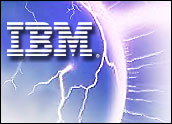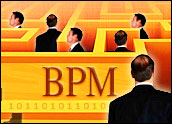
As the systems that run the way we work and live become smarter, the workplace as we know it is undergoing dramatic and dynamic change. The challenge organizations face is embracing the rapid shifts in today’s world for their own advantage rather than resisting them.
In the face of this challenge, individuals and teams today are able to collaborate, cocreate, and shift the way they do business in ways never before possible — and yet we waste an average of 5.3 hours per employee per week because of inefficient processes. A full two-thirds of employees believe there are colleagues who can help them do their jobs better, but they don’t know how to find them.
Managing the deluge of information that floods modern businesses is a daunting task: Too often, people are forced to make decisions with the wrong information. Many CEOs are acutely aware of the need to restructure the way their organizations work.
New Era
Everywhere we look, rapid marketplace shifts are transforming how we work — how we optimize the processes that guide our work, share information and make decisions.
Gone are the days when a person had to be tied to a desk and chair in the office to get the job done, or when innovation was a guarded secret, with all the novel ideas created in isolation.
We’re in a new era now, in which work and new ideas increasingly are driven by openness, sharing, and a drive for improvement.
Indeed. The rise in globalization has opened access to new talent, expertise and resources that have energized businesses. Meanwhile, with computational power now being put into things we wouldn’t recognize as computers, any person, any object, any process or service and any organization — large or small — can become digitally aware, connected and smart.
Clever social software and Web 2.0 tools allow us to tap into partner and customer thinking, access up-to-date information, and associate people with areas of expertise. With this shift, we can build real-time collaboration into key aspects of our business processes across company boundaries and networks. People can act as intelligent sensors and empowered decision-makers at crucial steps of our workflow.
In today’s tough economic environment, businesses are feeling the pressure to respond in real-time to whatever the day brings: a change in supply or demand; a shift in the preferences of buyers; the vagaries of capital markets; and the unpredictable and unknown — everything from new regulations to new competitors.
The Workforce Is Ready
Add to that the complexity of transforming the way things work while simultaneously trying to connect and corral all the different activities and pieces of information scattered across the organization, and it’s like changing tires on a speeding car.
In the past, changing rules that workplace processes followed meant dismantling the whole thing and building it back up again. In a smart work environment, business processes are dynamic, automated and intuitively integrated into the work environment — connecting to a wide range of systems and people in a variety of ways as they orchestrate and respond to all the different activities flowing between departments and from the outside world.
This could enable an automated electronics assembly process to pull in the best parts, suppliers and assembly expertise without disruption as market needs continuously change. In the same way, a retail buyer could use seemingly unrelated purchases events to find an emerging trend in a product line.
Customers want products and services on their own terms, specific to their needs — when, where and how they choose. In response, employees are expected to be more productive within the context of the business they do every day — and decisions aren’t restricted to the four walls of a conference room. The closest colleague may be 5,000 miles away.
The workforce is ready. Employees know their jobs and have valuable ideas. It’s the processes that guide their work that haven’t kept up. As a result, organizations and businesses around the world are recognizing that they need to rethink the systems that support people and the collaborative business processes that define their daily work. Doing so can release a wave of creativity and problem solving, and enable the very act of enterprise.
To get there, organizations must
- make it orders of magnitude faster, easier and less expensive for business users to optimize the processes they control in response to marketplace shifts;
- keep people in touch with expertise and information by giving them access to the right collaborative resources for the moment, from anywhere and through any device;
- create a stronger, more participatory business culture that fosters quick thinking, new ideas and hidden knowledge; and
- make collaboration a fundamental part of how work is done to make their business processes faster and more efficient.
Freedom to Innovate
To take advantage of the full scope of a smarter planet, people and processes — and the information they use — must be easily connected and changed inside and outside the organization. The good news is that many organizations around the world are showing the way.
Some are keeping their finger on the pulse of the market and responding in real-time. Others are working and collaborating in new ways across ecosystems, supply chains and their own business units. And some organizations are changing where and how decisions are made, and are including input from employees, partners and customers.
As our planet becomes smarter — more interconnected, instrumented and intelligent — organizations around the world are transforming their workplaces not only by managing their processes more efficiently, but also by unleashing the genius and creativity of the workforce itself.
When people have the resources they need and the freedom to use them, new ideas get shared, virtual communities thrive, collaboration gets energized, innovation blooms, and the productivity of the entire organization begins to flourish.
Craig Hayman is general manager of BPM, WebSphere and SOA at IBM.














































